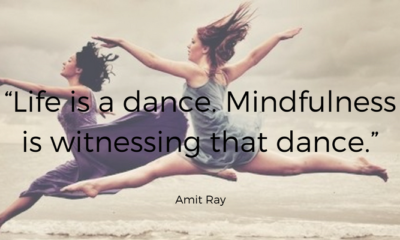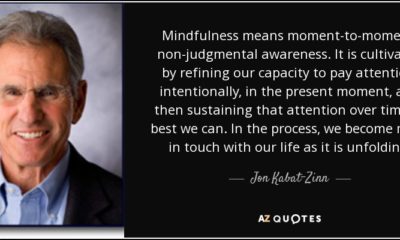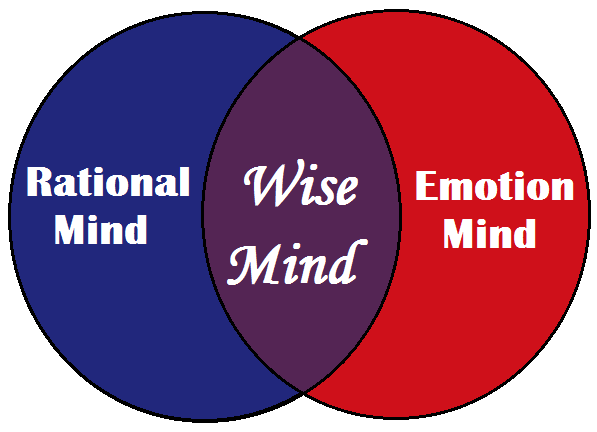eating disorders
Mindfulness for eating disorders

Mindfulness for eating disorders
by Janette Grant 18th December 2017

The power of BEING PRESENT for Disordered Eating
Those of us suffering from an eating disorder can be helped enormously by becoming mindful, which helps to silence the critical voices inside our heads. Everyone struggles with trying to remain in the present moment – with non-stop social media distractions, planning for the future, and memories from the past fighting for our attention – so it’s not hard to understand why most people struggle to appreciate the present.
Individuals diagnosed with an eating disorder such as anorexia nervosa, bulimia nervosa or binge eating disorder struggle with the critical voice inside their heads and thoughts surrounding calorie intake and weight are a huge burden to bear. These negative thoughts make them question their self-image, decreases their self-esteem and affects their ability to understand and appreciate the present moment. And then when they are bombarded with images of skinny models, articles on the next fad diet and peer and family pressure, food becomes a way of coping with the stress caused by this – it’s a vicious circle!
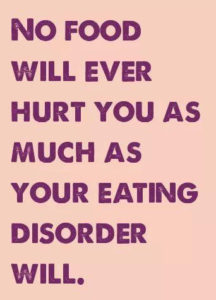
No food will ever hurt you as much as your eating disorder will
This makes it even harder for these individuals to live in the present, due to the constant worry about gaining weight from the food they just ate and obsessing over their exercise regimes. However, once they are able to become aware of the social and environmental stressors which cause them to feel she or guilt, they can then turn those stressors into activities that will feed their soul instead.
How mindfulness can help with eating disorders
Studies in mindfulness techniques has shown that participants practising mindfulness enjoyed significant reductions in weight and shape concern, dietary restraint, thin-ideal internalisation, eating disorder symptoms and psychosocial impairment. In a world of constant distractions, cultivating mindfulness can help suffering individuals decrease the number of binges for example and become more comfortable in their own skin. Mindfulness can also increase motivation to change unhealthy eating behaviours. We go into full detail about mindfulness and weight loss etc on this page and on our Mindfulness-Based Eating Awareness Training post.
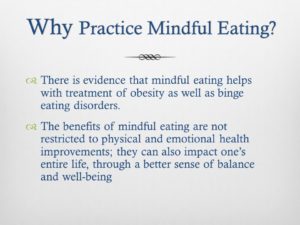
Why Practice Mindful Eating?
There is evidence that mindful eating helps with treatment of obesity as well as binge eating disorders.
The benefits of mindful eating are not restricted to physical and emotional health improvements; they can also impact one’s entire life, through a better sense of balance and well-being.
Mindfulness for eating disorders
There are a number of techniques that can help with eating disorder suffering for individuals overwhelmed with their own thoughts and engaged in destructive behaviours. These techniques can prevent the behaviours such as not eating, purging, or eating until uncomfortably full. Once individuals take a step back and focus on the present moment and their feelings, they are able to transform their impulsive eating habits into healthy thoughts and behaviours. The following techniques can help in battling difficult moments and practising them will make any person become more mindful of the present moment.

Make Peace with Food
- Understand the moment – it is important to understand what is happening to make us feel this way or to engage in a destructive eating habit. When we become aware of the present moment we will become aware of ourself in relation to the environment and be able to differentiate between environmental and personal factors which empower us and those things that belittle us. We should ask ourself ‘What am I feeling and why?’ and ‘What is currently causing me to harm my mind and body?’ Practising mindfulness will help us to recognise the critical voice inside of us and to gain the resilience to remove ourself from those stressors in the environment that cause us to question our self-worth. We can then move on and choose the things that feed our spirit in a more meaningful way. Writing down our thoughts, practising meditation and yoga are all good mindfulness techniques to evoke the relaxation response and help us to live in the present.
- Focus on the positive – by practising mindfulness it will help us to recognise that our thoughts do not need to dictate who we are. When our mind begins to entertain thoughts of a negative self-image, desires to become thin, or feelings of guilt, we must just recognise them for what they are – just thoughts – and let them go likes leaves floating down a stream. We can then engage in more positive behaviours such as exercising, cooking a healthy meal, or meeting up with supportive friends and family.
- Take action – once we have gained awareness of our environment and the thoughts associated with our eating disorder, we can now build resilience against it. Working with a dietician to create a meal plan can help us to become more mindful whilst food
 shopping and cooking. We should avoid all distractions, (including our phone) whilst eating, so that we mindfully eat and enjoy the taste of the food and company of others. We can have fun by cooking healthy meals with friends. Doing this, establishing an exercise programme, and doing things we enjoy will cultivate mindfulness, which in turn will help us to achieve a positive self-image and finally feel love for our mind, body and soul.
shopping and cooking. We should avoid all distractions, (including our phone) whilst eating, so that we mindfully eat and enjoy the taste of the food and company of others. We can have fun by cooking healthy meals with friends. Doing this, establishing an exercise programme, and doing things we enjoy will cultivate mindfulness, which in turn will help us to achieve a positive self-image and finally feel love for our mind, body and soul.
Mindful eating can be practised alongside any diet, dietary programme or way of eating. As our mindfulness develops, we will naturally be drawn towards eating more healthfully. A mindfulness approach focuses on our body, eating behaviours, thought patterns and underlying beliefs, and our emotions. And it is when we are dissociated from all these that an eating disorder takes over. Unfortunately, weight and diet programmes do not address any of these issues.
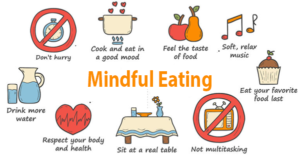
Mindful Eating: Cook and eat in a good mood. Feel the taste of food. Soft relaxed music. Eat your favourite food last. Not multi-tasking. Sit at a real table. Respect your body and health. Drink more water. Don’t hurry.
Practising mindful meditation when in recovery from an eating disorder can calm our mind and teach us to relax in environments that trigger destructive eating behaviours , thus helping us to make more sound decisions to benefit our health. Using the techniques learnt from meditation allows us to take a step back from a stressful situation, let go of our negative thoughts and respond in a more productive way.
How to introduce mindfulness meditation into our daily routine
- Begin the day by waking up all the parts of our body with simple stretching yoga poses, which will help calm the mind before the rush of the day
- Take a few minutes from the day’s schedule to check in with our breathing. When we are dealing with a difficult situation, recognise that moment and find our steady breath.
- When our busy day is done, schedule 10-15 minutes before dinner to engage in some mindful meditation practise. This will help release the stress from the day and help us to go on into mindful eating practises.
- Take 5 minutes later in the evening to body scan all the parts of our body, noticing areas of tension and release all the stress from the day. Bring our focus to the present moment and centre our thoughts.
We need to remember that when life seems to be running away from us, we must slow down and find peace within ourself. This will help us to make more healthy decisions in the present moment. When we centre our mind and body and focus on the present we will naturally learn to engage in behaviours that benefit our overall health and well-being.

Mindless eating v Mindful eating
Before – my eating disorder story – emotional eating, binge eating, dieting, fasting, bulimia, overeating, food addiction.
After – my eating recovery story – the natural way of eating, the natural way of being
After reading the above, these are a selection of books you may find helpful to learn more about mindful eating:
The Mindfulness-Based Eating Solution: Proven Strategies to End Overeating – if you want to lose weight, feel better, and truly enjoy your food, the easy-to-use strategies in this book will show you how – one mindful taste at a time.
Mindful Eating: A Guide to Rediscovering a Healthy and Joyful Relationship with Food – a book showing how mindfulness can restore the healthy relationship with food we are meant to have.
Mindful Eating: Free Yourself from Overeating and Other Unhealthy Relationships with Food – this is a clear presentation of how mindfulness can transform our struggles with food.
When Food is Comfort: Nurture Yourself Mindfully, Rewire Your Brain, and End Emotional Eating – this book explains how emotional overeaters can learn to self nurture through simple easily mastered skills.
eating disorders
Mindfulness-based eating awareness training

Mindfulness-based eating awareness training
by Janette Grant 7th December 2017

Mindfulness-Based Eating Awareness Training
Overcome binge eating, emotional eating, overeating. Make peace with food.
When it comes to eating our motto should be Eat when we’re hungry, stop when we’re full. But for many of us it’s not so simple! When we are bombarded daily with advertisements for high-fat, high-salt and high-sugar foods and are confronted with ‘go large’ restaurant portions, it is often all too easy to forget what hunger and satiety feels like. We eat because it is ‘time’ to eat, when food is put in front of us, or to deal with feelings of anger, anxiety, depression or simple boredom – instead of eating when only when we are hungry.
We can read all about mindful eating on this page, but here we plan to concentrate particularly on the development of Mindfulness-Based Eating Awareness Training (MB-EAT) and how it contributed to the science and understanding of the mindful way of eating.

Eat right
We all eat mindlessly at times – some of us all the time! We may be in a hurry, watching tv whilst eating, socialising or just eating everything in front of us just because it’s there! Or we may eat as a way of handling stress, gobbling down a ‘comfort’ food, but not really tasting it after the first few bites. When this leads to a constant struggle with most of our meals, we can help ourself overcome this problem with mindful eating. This powerful way of eating can show us another option to how we relate to our experiences of eating, our relationship to ourself and the many food choices we face every day. This will then enable us to move on with our life, for which eating gives us nourishment and energy!
So how did Mindfulness-Based Eating Awareness Training develop?
MB-EAT has developed over many years of work with a number of individuals, including both men and women, with various weight levels – from normal to severely obese. These people have enrolled in the treatment for various reasons: for help with compulsive eating; binge eating; to lose weight; maintain weight loss; and/or to simply improve their relationship with food and themselves. There are many different issues, but these individuals’ distorted and dysfunctional relationships to food, and their bodies, have more similarities than differences.
Studies have shown how sensitivity to external factors can override internal hunger, satiety cues, taste awareness and self-regulation, but Mindfulness-based eating awareness training allows us to find a new approach to eating and weight issues. It helps us to tune into our experiences of hunger, taste, and fullness, instead of ignoring these important feedback messages.
internal hunger, satiety cues, taste awareness and self-regulation, but Mindfulness-based eating awareness training allows us to find a new approach to eating and weight issues. It helps us to tune into our experiences of hunger, taste, and fullness, instead of ignoring these important feedback messages.
Mindfulness-Based Eating Awareness Training began in the early 1980’s with a group of young women and the programme has now evolved into a full 12 sessions after many research studies. Development of the programme saw the addition of Forgiveness meditation – focusing on self-acceptance and forgiving others and Wisdom meditation – helping participants engage a higher/spiritual self. This first study included 18 women who were struggling with binge eating disorder, with an average age of 46 and an average weight of 239lbs – BMI of 40. None of them had previous meditation experience. This programme originally consisted of 7-8 sessions, with a range of meditation practices, including breath awareness, mini-meditations, mindful eating meditations and mindful eating exercises, which ranged from easier to more challenging foods, including raisins, snack foods and chocolate. Treatment effects were consistent enough for assessments across all the participants. During the course of the programme the incidences of binges, depression and eating issues all reduced significantly and remained lower during the six-week follow-up period. Noticeably, the degree of improvement was in direct correlation to the time spent on the eating-related meditations.
In later years, the programme was increased to nine sessions with three follow-up sessions, adding further information about nutritional health and exercise. This was to balance the content better with a comparison group, which primarily involved cognitive-behavioural treatment and educational components. More mindful exercise was added into the programme, along with more guided meditations. And both programmes focused on improving eating patterns, rather than weight loss per se.
The Mindfulness-based eating awareness training group produced greater or comparable effects to the comparison group in almost every area of the treatment, with the greatest reduction shown in the frequency and size of binge eating episodes. Furthermore, in the MB-EAT group, improvement on a number of variables correlated as before, with the amount of mindfulness practise, and those who practised mindfulness the most, also saw the greatest weight loss.
Following these results, which focused on individuals with more severe concerns relating to eating and weight, the programme was expanded to include persons with lesser eating problems, but with similar weight issues. And more elements focusing on expanding ‘outer wisdom’ and cultivating weight loss we also added.
What does Mindfulness-based eating awareness training now entail?
The new MB-EAT programme had 10 core longer sessions, with two follow-up sessions. About 30% of participants had binge eating disorder and all had weights at or above a BMI of 35 (moderate obesity). Part of the ‘outer wisdom’ elements included the ‘500 Calorie Challenge©’, which asked the participants to find 500 calories in their daily food intake to cut out – permanently. The idea was rather than trying to restrict their diet to 1200 or 1400 calories, the participants were challenged to make a meaningful change to their eating habits to lead to weight loss – one that was hopefully sustainable. 500 calories may seem a lot, but spread over three meals and two snacks, it’s only 100 calories a time. It could be as simply done as cutting out three fizzy drinks a day, or fewer second helpings. More nutrition guidance and mindful exercise elements were also added. Results from this programme showed that participants with or without binge eating disorder achieved almost identical improvement, and weight loss was far more consistent, with some individuals losing as much as 25lbs – and keeping it off, or losing even more.
Bite, chew, savour… 
The MB-EAT programme has since been adapted to treat type-2 diabetes and a wider range of individuals with weight issues and can also help children with eating and weight problems. The programme now blends mindful eating exercises, such as being aware of hunger and what it feels like in the body; chewing food slowly, learning to savour our food and being mindful of the taste; and being aware of what fullness feels like, along with mindfulness meditation practised to enhance a more general ‘moment-to-moment’ self-awareness. It teaches people that once paying attention to the body’s signals, brownies, cakes and biscuits etc are best experienced and savoured in just a few bites.
Our tongue’s taste buds are chemical sensors that tire quickly and the first few bites of a food will always taste better than the next few – and then after a large amount, we will have very little taste experience left.
The programme teaches participants that by truly focusing on how much they are enjoying the food and being aware of the point at which it stops being enjoyable, they will learn to eat much smaller amounts, leave food on their plates and only return for seconds if they really need more. Their relationship to food becomes about finding satisfaction in quality, not quantity.

What is clear is that Mindfulness-based eating awareness training can change peoples’ relationship with food very quickly, and within a few sessions, they are often starting to eat differently. And that has got to be a good thing for their future health.
These books could help to expand our idea of mindfulness-based eating awareness:
Mindful Eating on the Go: Practices for Eating with Awareness, Wherever you are – this compact, little book makes mindful eating accessible, with simple exercises we can use anywhere and anytime we want to reconnect with eating as one of life’s great joys, rather than a cause for anxiety, stress or calorie-counting.
The Mindfulness-Based Eating Solution: Proven Strategies to End Overeating, Satisfy your Hunger and Savour Your Life – this book teaches us about a program, which helps us to slow down, savour each bite and actually eat less. We are encouraged to adopt healthy eating habits by showing us how to listen to our body’s intuition, uncovering the cause of overeating and therefore, be more mindful during meals. If we want to lose weight, feel better, and truly enjoy our food, the simple strategies in this book will show us how – in one mindful taste at a time.
The Path to Mindful Eating: 4 books in 1: Buddha Bowl Cookbook, The Buddha Diet, Yoga for Weight Loss Secrets and Yoga Cookbook Ebook – this teaches us how to relate mindfully with our food, tame our cravings and impulses and giving us details on how we can control and improve our mindful eating patterns. It also gives us some great dishes we can put together, focusing on the type of foods we eat and haw it can affect our digestive system.






